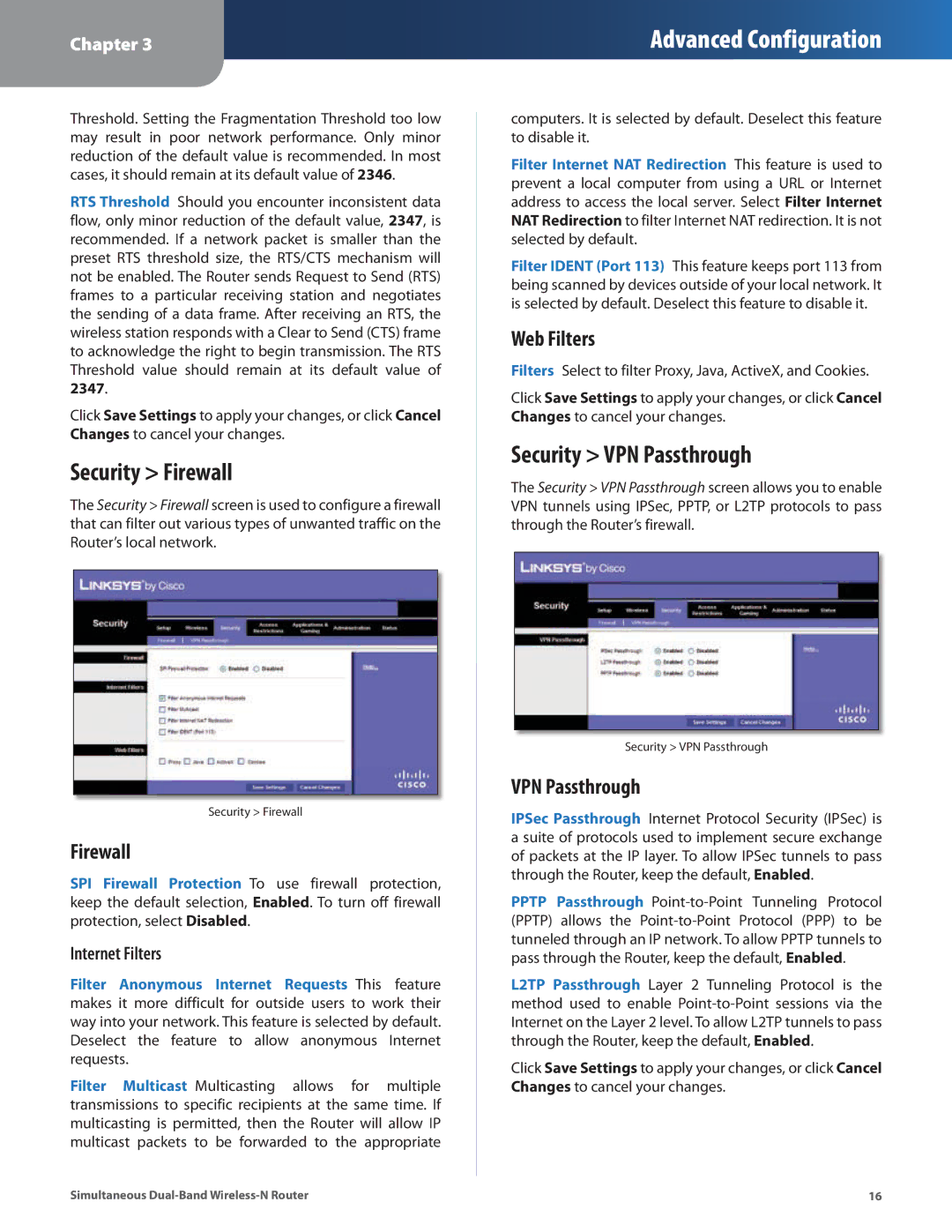
Chapter 3
Advanced Configuration
Threshold. Setting the Fragmentation Threshold too low may result in poor network performance. Only minor reduction of the default value is recommended. In most cases, it should remain at its default value of 2346.
RTS Threshold Should you encounter inconsistent data flow, only minor reduction of the default value, 2347, is recommended. If a network packet is smaller than the preset RTS threshold size, the RTS/CTS mechanism will not be enabled. The Router sends Request to Send (RTS) frames to a particular receiving station and negotiates the sending of a data frame. After receiving an RTS, the wireless station responds with a Clear to Send (CTS) frame to acknowledge the right to begin transmission. The RTS Threshold value should remain at its default value of 2347.
Click Save Settings to apply your changes, or click Cancel Changes to cancel your changes.
Security > Firewall
The Security > Firewall screen is used to configure a firewall that can filter out various types of unwanted traffic on the Router’s local network.
Security > Firewall
Firewall
SPI Firewall Protection To use firewall protection, keep the default selection, Enabled. To turn off firewall protection, select Disabled.
Internet Filters
Filter Anonymous Internet Requests This feature makes it more difficult for outside users to work their way into your network. This feature is selected by default. Deselect the feature to allow anonymous Internet requests.
Filter Multicast Multicasting allows for multiple transmissions to specific recipients at the same time. If multicasting is permitted, then the Router will allow IP multicast packets to be forwarded to the appropriate
computers. It is selected by default. Deselect this feature to disable it.
Filter Internet NAT Redirection This feature is used to prevent a local computer from using a URL or Internet address to access the local server. Select Filter Internet NAT Redirection to filter Internet NAT redirection. It is not selected by default.
Filter IDENT (Port 113) This feature keeps port 113 from being scanned by devices outside of your local network. It is selected by default. Deselect this feature to disable it.
Web Filters
Filters Select to filter Proxy, Java, ActiveX, and Cookies.
Click Save Settings to apply your changes, or click Cancel Changes to cancel your changes.
Security > VPN Passthrough
The Security > VPN Passthrough screen allows you to enable VPN tunnels using IPSec, PPTP, or L2TP protocols to pass through the Router’s firewall.
Security > VPN Passthrough
VPN Passthrough
IPSec Passthrough Internet Protocol Security (IPSec) is a suite of protocols used to implement secure exchange of packets at the IP layer. To allow IPSec tunnels to pass through the Router, keep the default, Enabled.
PPTP Passthrough
L2TP Passthrough Layer 2 Tunneling Protocol is the method used to enable
Click Save Settings to apply your changes, or click Cancel Changes to cancel your changes.
Simultaneous | 16 |
